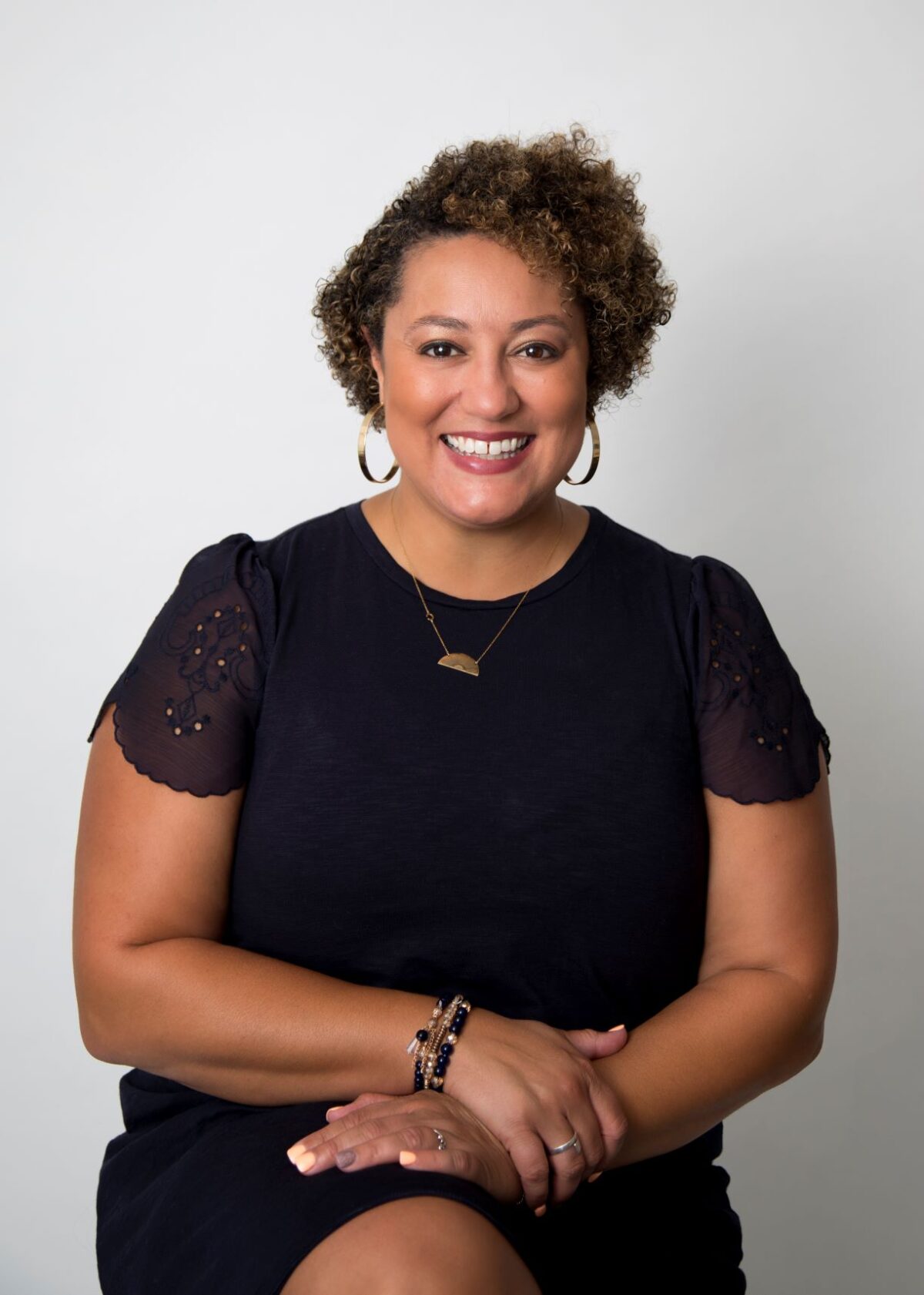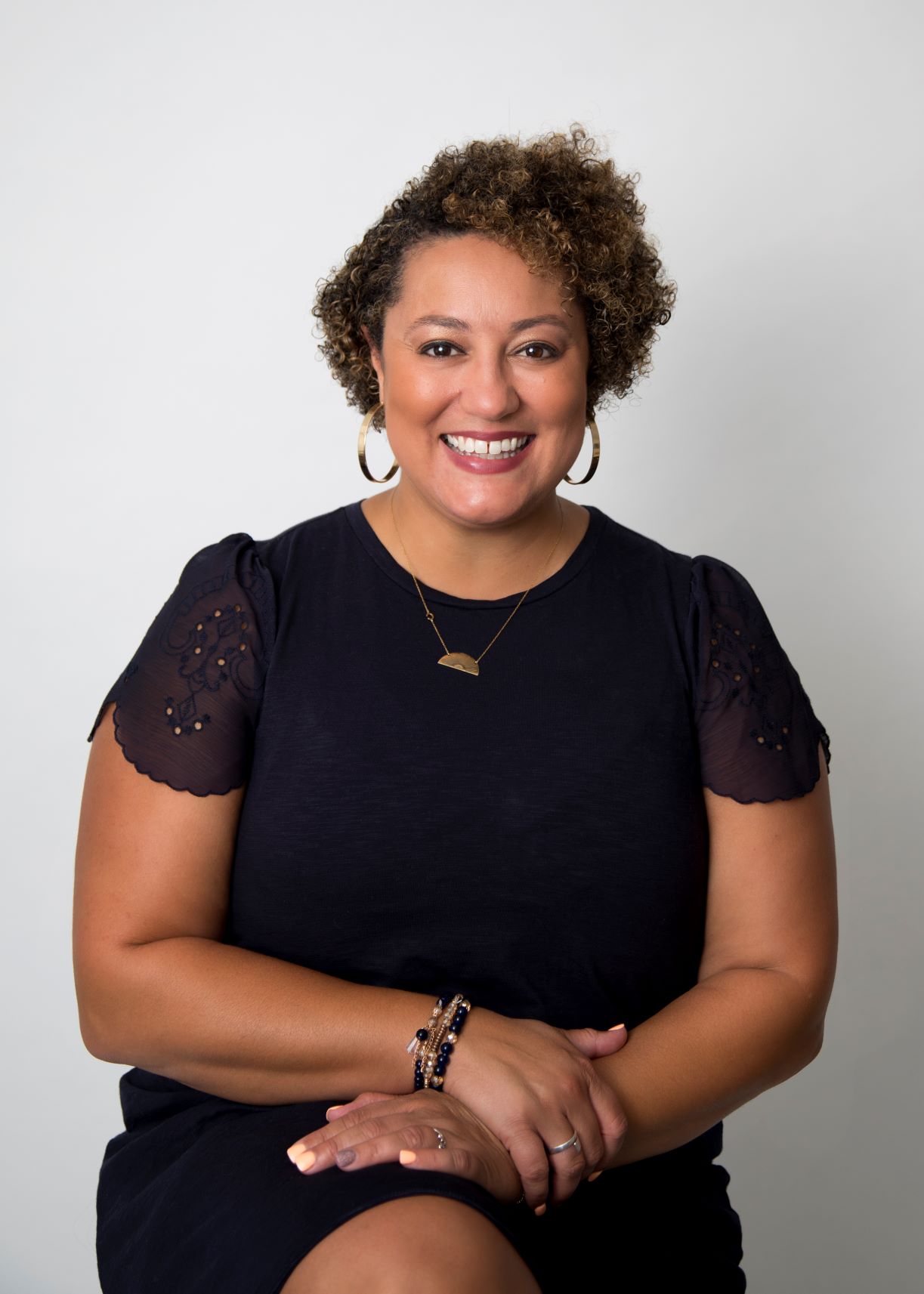Before Amy Hull, M. Ed., became the first Director and Head of Diversity, Equity, and Inclusion at Paycor Inc., she had a 17-year career in education as a teacher and administrator. Hull says her work is grounded in her upbringing as well as her professional experience.
“I was raised by two Black parents 20 years apart in age,” she recently shared with HR Daily Advisor. “My Dad, often found in the business world as the “only one in the room” went on to integrate several community and civic organizations as well as businesses from the 1960’s to 1980’s. My Mom, the youngest of three and nicknamed “Pinky” for her lighter melanin hue, was raised in the thick of the Civil Rights Movement, started and completed her studies after age 40 with three college degrees (two advanced) and retired as a Montessori elementary school principal. Their story helped to create and instill a determination for me to put a seat at every table I have come to, and a desire to work for those who are voiceless.”
Hull has a B.S. in Biology from Ohio University, an M.Ed. in Education from Xavier University, and a second M.Ed. in Administration from the University of Cincinnati. She was a 2019 Top 100 Working Woman (Cincinnati Herald/MAO Brand). Hull is an active member of Delta Sigma Theta Sorority, Inc. and a board member for the non-profit eXclusive Services, LLC, working to help the minority community with drug rehabilitation, prevention, and mental health for adults and youth in Ohio. She is also on the DE&I Advisory Council for the Cincinnati Chapter of the Alzheimer’s Association bringing education and awareness to minority communities. She is also the founder and owner of Equity LDI, LLC, a consulting firm that provides guidance in leadership development, diversity, equity, and inclusion.
In her current role at Paycor, which creates Human Capital Management (HCM) software, Hull leads with authenticity and works tirelessly as a corporate leader turning DE&I strategy into actionable results. Her work is helping the company learn how to internalize the work of DE&I to achieve systemic change for sustainable inclusion and belonging for all employees. Additionally, her work was used in the recent listing of the Paycor, Inc. with NASDAQ, Inc and her leadership guided the organization in obtaining the 2021 Top Workplace DE&I Practices Award.
In our latest Faces of HR profile, meet Amy Hull.
How did you get your start in the field?
I was influenced and inspired by my parent’s strong passion for education. I got my start as an educator and for nearly 20 years worked as a public high school biology teacher and high school administrator seeing firsthand the effects that bureaucracy, government, socioeconomics, curriculum, power structures, and other societal pitfalls have had on various populations in America. My work in the schools always infused elements of diversity, equity, and inclusion as well as civil rights and responsibility into the work and the students or staff.
From there, I went on to a suburban public school district where the work became intentional and led me to a passion for doing it full time. Prior to COVID hitting in early 2020, I had made plans to leave the field and go back to school to obtain an HR degree. This was also before George Floyd was murdered in front of the entire world. Those two events changed my plans and changed the course of what was important in corporate America. The position I currently hold posted in August. I applied and became the first Manager of DE&I at Paycor, Inc., and am grateful for the opportunity to build a strategic plan from the ground up. I am living my passions every day.
I am also featured in Oyler School: Dramatic Turnaround in A Poverty Stricken Community, an Amazon Prime Documentary that details the life of two high school seniors fighting the symptoms of generational poverty and a school with creative solutions. My work there led to receiving the Next Generation Leadership Award in 2015.
Who is/was your biggest influence in the industry?
This is tough to answer since I am new to HR/HCM and DE&I. However, I will say, I have encountered some amazing mentors and guides in the space and developed relationships that have helped me grow as a professional. From a DE&I perspective, there hasn’t been just one person but several that together have helped shape my movement forward.
What’s your best mistake and what did you learn from it?
My best mistake was in a previous role/position. I created a survey for adults that I had modified from a research-based study. However, I did not take the survey to my colleagues and leadership team to have it vetted prior to sending it out. It turns out that there was a question that was offensive and caused a great deal of stir. It even landed on the plate of the public information officer and therefore caused a conversation with me about what gets released. I think the best lesson I had from that was even if I think something is important or if I am interpreting it a certain way, it doesn’t mean that everyone will have the same perspective. It taught me the importance of reliance on your team, that operating in silo is never the right thing to do when communicating with human beings, and that diversity of thought improves all outcomes.
What’s your favorite part about working in the industry? What’s your least favorite part, and how would you change it?
My favorite part about working in a subsidiary of HR as a DE&I Professional is being able to influence the decisions that directly affect the well-being of human life. That what I am able to work towards and contribute, is not only beneficial to the business, but ultimately is helping people feel better about themselves at work and improves their quality of life. Decisions that are concerned with benefits, compensation or overall professional development, can change people’s lives.
My least favorite part is wanting to do what is right for all people and hitting roadblocks in communication channels or when building revenue is just as important as building inclusion and belonging. Finding the balance between both has been challenging in this space. It is also difficult and hard when assumptions are made, and it stifles progress. I am working to change these things by collaborating with the executive team, leaders in each section of the business and by developing our communication styles with associates.
It sounds like through your experience you really care about people, and you want to help them feel safe and comfortable, which is important in the industry. Please elaborate here.
I call myself a recovering people-pleaser. I know that everything now can’t be done for the good of others and in the process exclude myself – which is why I say “recovered.” I used to put everyone before myself and learned quickly that is not a healthy way to live. However, I want everyone around me to feel good and be happy regardless of their personal beliefs, preferences, culture, or any aspect of their diversity. We all have a right to exist in this world with the opportunity to achieve success in the way that we define it personally. To do that, there are systems that have been in place to disrupt that balance and opportunity for all that we have to work to change. Building relationships with others, creating empathy, and connecting with them in ways that no other has before is what keeps me going. It is important in the industry because it directly affects levels of engagement and personal success. It can also affect livelihood and overall physical and mental health.
How can company leaders make HR a value within their organization?
I will speak specifically to DE&I as that is my area of focus and it currently lives within HR. The best way to value DE&I is to place the same amount of priority to investing in it, as you do all other aspects of running the business. As noted by research, 67% of job seekers are looking for companies that have DE&I, and are now interviewing companies rather than the other way around. It becomes valuable when it has been integrated into the fabric of the work in every organizational function. Leaders should invest financially in their people. Grow and spend time creating opportunities for people to feel like they are contributing to the success of the company and to themselves. Having a philosophy that you are willing to help people feel like they belong, and that you are willing to help them become better people and professionals will go a very long way for engagement, retention and efficiency.
What are you most proud of?
Professionally, I am most proud of continuing to thrust myself into environments that may feel like a stretch and thriving in them. I am proud of noticing the potential in others and in organizations and helping to manifest the goals and the direction of the company. Personally, I am most proud that the work that I do every day is an example to my own children for how to treat people the way they want to be treated and how to create an environment where people feel welcome and valued to exist. I love being a mom to my two sons, and enjoy traveling, music, watching football, tennis and reading to lead.
Do you have any advice for people entering the profession?
If there is anyone interested in becoming a DE&I professional, leader or volunteer, my advice is to read a lot, invest in some of the certification offerings that exist, take courses and audit them, learn the history of multiple populations, and most importantly find a mentor that is already in the space. Thrust yourself into places and experiences that are uncomfortable so that when you are leading in the space, you can use yourself and your vulnerability as an example. You are also then able to speak from an authentic space about the evolution of your own journey to inspire and lead others.
Is there anything else you’d like to add?
People ask what the trends in DE&I are, and I think we should be careful to label what is occurring as a trend. This is a growing and developing field that is newly valued, and therefore everything that is coming out of the field is novel, necessary and shouldn’t ever go away. It should be an additive to the recipe for successful inclusion and belonging. What should come down the line are degree programs, academic majors, and opportunities to obtain credentials that represent the expertise and experiential learning of a DE&I professional. If a company or organization is placing the importance of diversity, equity, inclusion and belonging of its employees above all and positioning that focus on the people, then the success will follow.
The post Faces of HR: Amy Hull Talks Building Relationships, Creating Empathy & Connection to Move Forward appeared first on HR Daily Advisor.

